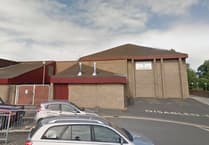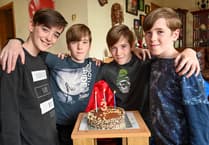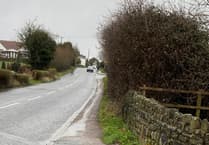WHILE wandering in the forest, you may notice a distinctive motif of a castle on the walls of some buildings.
Closer examination will reveal that it is surrounded by the text ‘West Country Ales’, ‘Best in the West’ and ‘1760’.
The building may be a pub, but it is now more likely to be a memorial to a former pub, one of the increasing number of ex-pubs in our part of the world, perhaps now a private residence.
Of the 137 pubs I reported last week that I visited in an 18 month pub crawl, at least 41 are now no longer trading, leaving several villages without a pub, including Awre, Tutshill, Beachley, Stowe (near St Briavels) and Brockweir.
This collapse of public houses continues a trend that has been going on for many years.
A walk along Newnham High Street will reveal memorials to many long-lost inns that provided refreshment for those engaged in the river trade.
Indeed the Forest View residence, 23 Railway Cuttings, formerly known as the New Inn, provided a service for passengers at the old Newnham Railway Station.
The river trade also supported 17 pubs in Brockweir, the last surviving one of which has recently closed.
There were even beer houses in remote areas like St Briavels Meend and the Pludds.
We have seen the swan song of a flock of Swans (at Pillowell, Brierley and Alvington), and the uprooting of trees at the Apple Tree (Minsterworth), The Yew Tree (Blakeney), the Royal Oak (Whitecroft), and the Bush (Lydbrook). We have lost the only Forest pubs which had grammatically correct sentences as their names, the exotically named ‘Help Me through the World’ (Coleford), ‘Live and Let Live’ (Tutshill), and ‘The Travellers Rest’ (Stowe).
Casualties include two pubs with wonderful views over the Severn, the Old Ferry (Beachley) and the Old Severn Bridge (Purton). Bream, which is possibly the largest village in the country, is now down to one pub, the Rising Sun, having lost the Winding Wheel and the Cross Keys.
Some pubs in remote rural areas with little passing trade have not survived, including the Silent Whistle (Oakle Street), the Besom (Alvington Common) and the Red Hart at Awre.
Footballers no longer gather at the Old Engine at Steam Mills after their game, and two further Cinderford pubs, the Bridge and the Railway have been completely demolished.
On my route from Chepstow to St Briavels in the 1970s there were seven pubs. On the Welsh side the Afon Gwy and the Bridge, and in the Forest there were the Cross Keys and ‘Live and Let Live’ in Tutshill, the Rising Sun in Woodcroft, the Carpenters Arms in Hewelsfield, and the Crown in St Briavels.
Only the Rising Sun survives, having been brought back to its former glory by a mighty and heroic community action team. I conclude with an ominous note from an early 20th century literary man, Hilaire Belloc: ‘When you have lost your inns, drown your empty selves, for you will have lost the last of England’.




